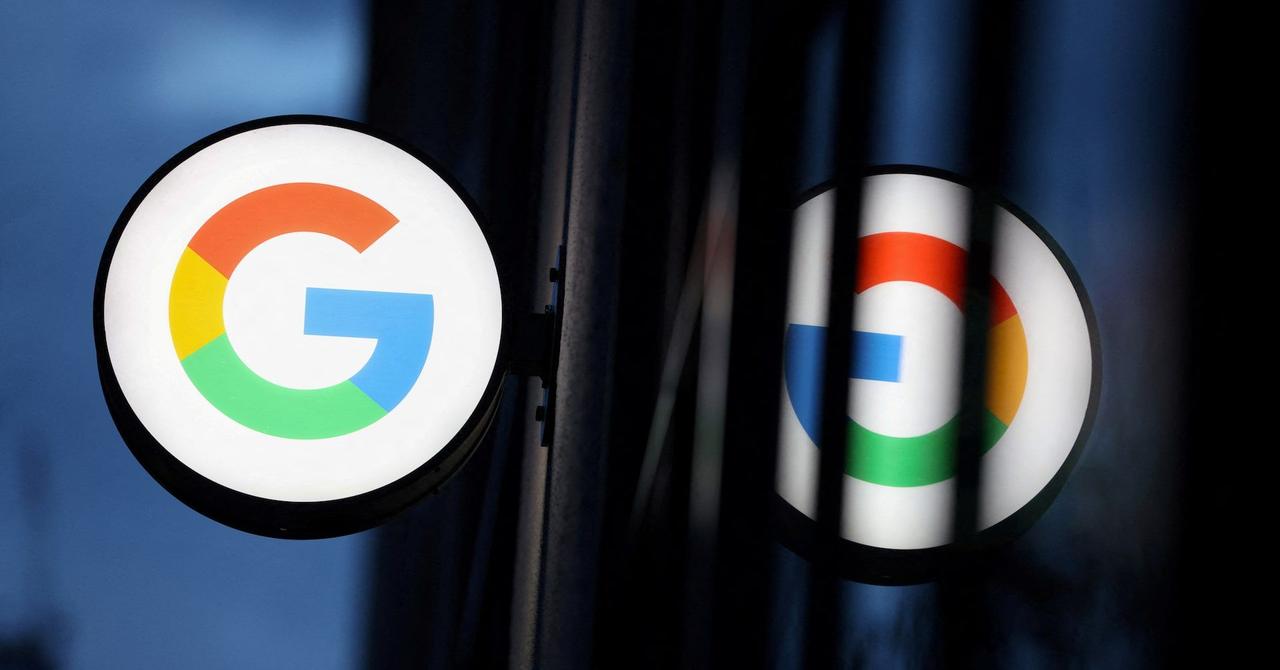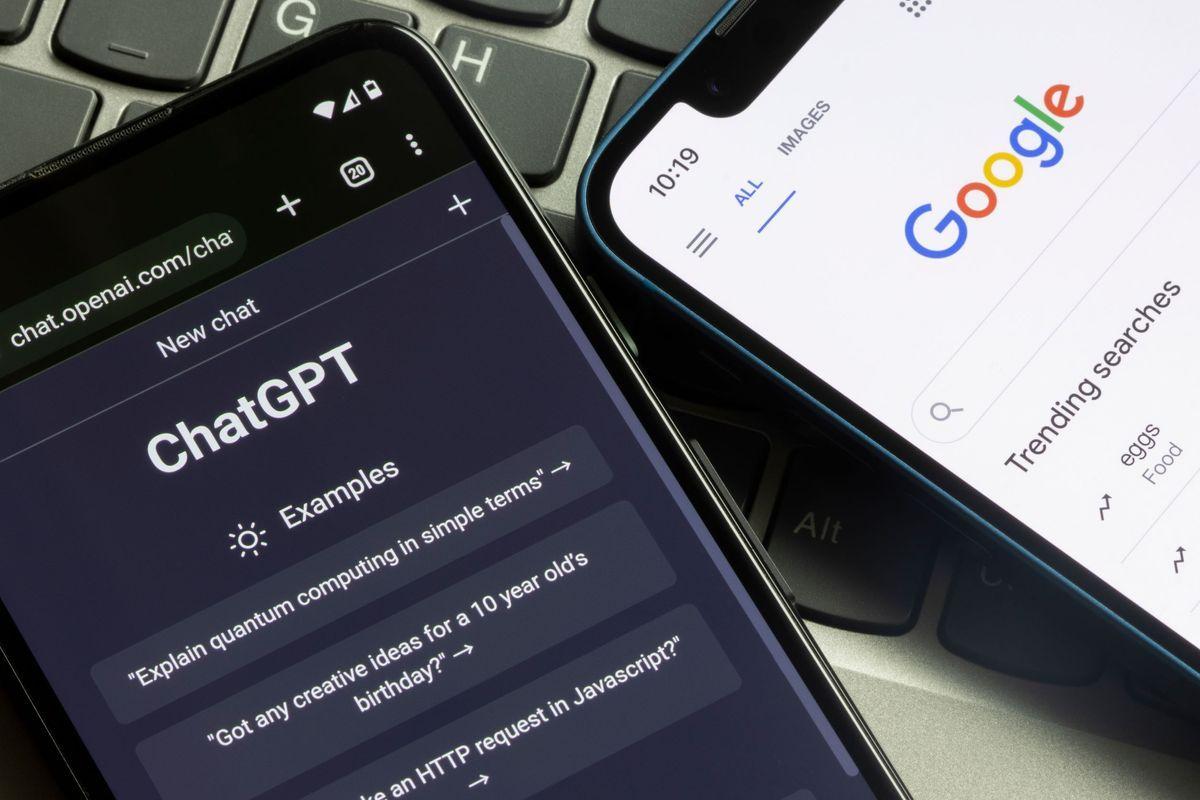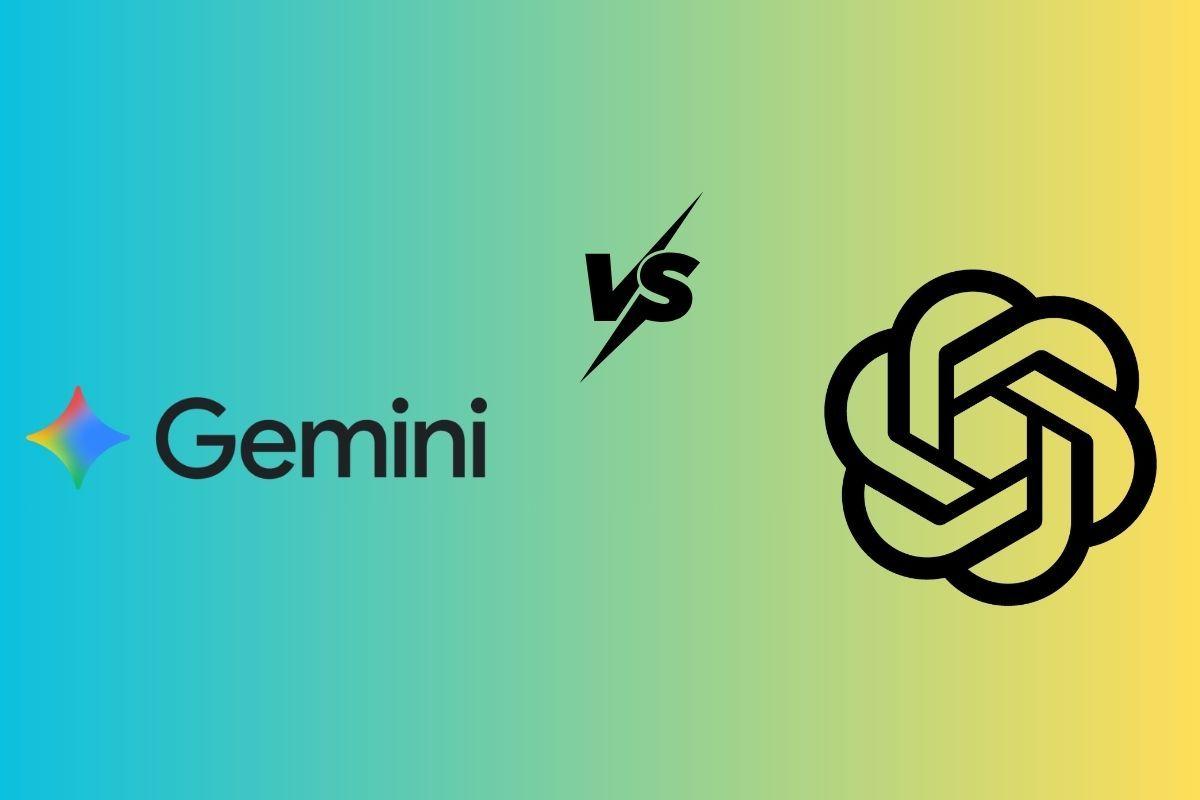Google's Two-Year Sprint to Catch Up in the AI Race: From ChatGPT Shock to Gemini
4 Sources
4 Sources
[1]
Inside Google's Two-Year Frenzy to Catch Up With OpenAI
The search giant should've been first to the chatbot revolution. It wasn't. So it punched back with late nights, layoffs -- and lowering some guardrails. A hundred days. That was how long Google was giving Sissie Hsiao. A hundred days to build a ChatGPT rival. By the time Hsiao took on the project in December 2022, she had spent more than 16 years at the company. She led thousands of employees. Hsiao had seen her share of corporate crises -- but nothing like the code red that had been brewing in the days since OpenAI, a small research lab, released its public experiment in artificial intelligence. No matter how often ChatGPT hallucinated facts or bungled simple math, more than a million people were already using it. Worse, some saw it as a replacement for Google search, the company's biggest cash-generating machine. Google had a language model that was nearly as capable as OpenAI's, but it had been kept on a tight leash. The public could chat with LaMDA by invitation only -- and in one demo, only about dogs. Wall Street was uneasy. More than six years earlier, CEO Sundar Pichai had promised to prepare for an "AI-first world" in which "an intelligent assistant" would replace "the very concept of the 'device.'" Soon after, eight of Google's own researchers had invented transformer-based architecture, the literal "T" in ChatGPT. What did Google have to show for it? Disappointing ad sales. A trail of resignations among the transformers inventors. A product called Assistant -- the one Hsiao managed -- that wasn't used for much beyond setting a timer or playing music. All that and a half-baked chatbot for Gen Zers that gave cooking advice and history lessons. By the end of 2022, the stock price of Google's parent company, Alphabet, was 39 percent lower than the previous year's end. As 2023 began, Google executives wanted constant updates for the board. Sergey Brin, one of Google's yacht-sailing cofounders and controlling shareholders, dropped in to review AI strategy. Word came down to employees that the $1 trillion behemoth would have to move at closer to startup speed. That would mean taking bigger risks. Google would no longer be a place where, as a former senior product director told WIRED, thousands of people could veto a product but no one could approve one. As Hsiao's team began the 100-day sprint, she had what she called an "idiosyncratic" demand: "Quality over speed, but fast." Meanwhile, another executive, James Manyika, helped orchestrate a longer-term change in strategy as part of conversations among top leadership. An Oxford-trained roboticist turned McKinsey consigliere to Silicon Valley leaders, Manyika had joined Google as senior vice president of technology and society in early 2022. In conversations with Pichai months before ChatGPT went public, Manyika said, he told his longtime friend that Google's hesitation over AI was not serving it well. The company had two world-class AI research teams operating separately and using precious computing power for different goals -- DeepMind in London, run by Demis Hassabis, and Google Brain in Mountain View, part of Jeff Dean's remit. They should be partnering up, Manyika had told Pichai at the time. In the wake of the OpenAI launch, that's what happened. Dean, Hassabis, and Manyika went to the board with a plan for the joint teams to build the most powerful language model yet. Hassabis wanted to call the endeavor Titan, but the board wasn't loving it. Dean's suggestion -- Gemini -- won out. (One billionaire investor was so jazzed that he snapped a picture of the three executives to commemorate the occasion.)
[2]
Google's AI race: A two-year run of crisis and chaos, recapped
When OpenAI released ChatGPT at the end of 2022, Google quickly lost control of the AI space it had helped pioneer. Although Google was the first to develop the transformer architecture that underpins modern large language models, it was OpenAI who raised the bar and ushered in a new era with ChatGPT. Google has since been on their back foot with an internal code red, with an intense two-year period of restructuring, layoffs, and rapid AI development work. When ChatGPT landed in late 2022, everything changed. Google, the giant who invented the tech that paved the way for ChatGPT, is now trailing behind. Wired just published a great article detailing how Google was caught off guard and has been trying to claw back into the lead -- or at least recover some lost ground -- in the years since then. Led by Sissie Hsiao, Google's AI team was tasked with building a ChatGPT competitor in 100 days. The result was Bard, brought forward by the work of thousands of employees, scaled-down security checks, and long hours. Meanwhile, Google's Brain and Deepmind AI units were merged, and that collaboration would result in Gemini, the language modeling project that helped salvage the company's reputation. But the road back to the top of AI has been bumpy. Bard made embarrassing mistakes, Google's AI search feature gave inaccurate (and sometimes dangerous) advice, and the company's image generator caused a media frenzy after generating historically inaccurate images. Despite the setbacks, Google has regained some ground. Gemini launched in late 2023 and beat ChatGPT in several tests. The AI assistant is now being integrated across the Google ecosystem -- from Gmail to Google Maps -- and efforts at "agentic AI" are now underway. But there's still much to prove. The AI initiative is expensive, energy-intensive, and taking place at a time when Google is at risk of losing significant search advertising revenue due to ongoing antitrust litigation. Internally, many worry about the pace, the workload, and whether this is really Google's second chance... or the start of something else.
[3]
Google's race from behind against OpenAI has 'been like sprinting a marathon'
After OpenAI took the world by storm with the launch of ChatGPT, Google (GOOGL+0.09%) reportedly gave its team working on artificial intelligence 100 days to build a competitor -- fearful of falling behind in a race it had been leading. More than two years later, the company's Gemini AI models are among the top-ranked chatbots on community-driven platform Chatbot Arena, alongside rivals from OpenAI. "It's been like sprinting a marathon," Sissie Hsiao, vice president and general manager of Gemini app and Speech at Google, told Wired. Hsiao and more than 50 current and former Google employees spoke to the publication about the race to develop its AI models and products. Hsiao said the tech giant was asking for "quality over speed, but fast" when developing its chatbot, originally code-named Bard. After initially launching the experimental AI chatbot in February 2023 -- months after ChatGPT's debut the previous November -- Google was caught up in what Hsiao said was "an innocent mistake" when the company's ad for Bard featured an incorrect answer. By December of that year, Google attempted a comeback when it unveiled its renamed AI chatbot, Gemini, which outperformed ChatGPT in a majority of industry benchmarks. The following February, Gemini hit another snag when its image generator made historically inaccurate images of people, such as racially diverse Nazi-era German soldiers. Hsiao reportedly gave the team time to fix the image generator before it rolled out the feature again in August. Despite other missteps along the way, Google remains on par to some competitors, and ahead of others. Earlier this year, Alphabet chief executive Sundar Pichai said Google's AI leadership makes it "confident about the opportunities ahead," and that the company expects to invest $75 billion in capital expenditures this year "to accelerate our progress." "Our results show the power of our differentiated full-stack approach to AI innovation and the continued strength of our core businesses," Pichai said in a statement about the company's fourth-quarter results. The quarter was "driven by" leadership in AI, Pichai said, including the AI Overviews feature in Google Search. In December, Hsiao told Quartz that she sees the "next frontier" of AI in "agentic capabilities." Gemini, specifically, "will be deeply personalized, remember what you've told it before, and at your direction -- be able to act on your behalf across Google, third-party services, and the web," Hsiao said. Earlier this month, Google said it was experimenting with allowing Gemini to personalize its responses by connecting with other Google apps, starting with Search. "Since 2016, we've said Google is an AI-first company, and that won't change," Hsiao told Quartz in December. "AI is a must-have, and as we see it being integrated into every aspect of a company's operations from product development, customer service, to marketing, and sales -- it's essential to embrace this technology in order to stay competitive."
[4]
A Peek Inside Google's 100-Day AI Sprint: How Gemini Went From Generating Controversial Images To Emerging As A ChatGPT Rival - Alphabet (NASDAQ:GOOG), Alphabet (NASDAQ:GOOGL)
Alphabet Inc.'s GOOG GOOGL Google embarked on a 100-day mission to create a competitor to ChatGPT. The project, led by Sissie Hsiao, aimed to counter the rising popularity of OpenAI's ChatGPT. What Happened: In December 2022, Hsiao, a veteran of over 16 years at Google, was tasked with assembling a team to develop a chatbot named Bard, as reported by Wired. This initiative was part of Google's response to the "code red" triggered by ChatGPT's release. Despite initial challenges, including Bard's inaccuracies and offensive responses, the team pushed forward. Google executives, including Sundar Pichai, emphasized the need for rapid progress. The urgency was heightened by the integration of ChatGPT into Microsoft Corp.'s MSFT Bing search engine. Subscribe to the Benzinga Tech Trends newsletter to get all the latest tech developments delivered to your inbox. To maintain its AI leadership, Google accelerated Bard's development, branding it as an "experiment" to manage expectations. Despite setbacks, such as a factual error in a marketing video that affected Alphabet's stock value, Google continued to refine Bard. The company ultimately merged its AI research teams, DeepMind and Google Brain, to create a more powerful language model, Gemini, which outperformed ChatGPT in several tests. See Also: Amazon Execs Question Microsoft's Quantum Computing Breakthrough, Say It's Necessary To 'Push Back' Against Satya Nadella's Comments: Report Why It Matters: The race to develop a ChatGPT rival is a crucial chapter in Google's AI journey. In December 2023, Google unveiled Gemini, marking a significant move against OpenAI. In early 2024, Google faced challenges with Gemini, including inaccurate image generation, leading to a temporary suspension of this feature. Controversies surrounding Gemini's inaccuracies prompted Sundar Pichai to acknowledge the issues, stating they were "completely unacceptable." Amid these challenges, Elon Musk voiced concerns about the potential dangers of "woke AI" like Gemini, highlighting the risks associated with AI programmed to enforce diversity. Despite these hurdles, analysts remain optimistic about Alphabet's position in the AI race, citing its strength in cloud, search, and YouTube segments. Check out more of Benzinga's Consumer Tech coverage by following this link. Read Next: Sam Altman-Led OpenAI Faces Legal Action Over ChatGPT 'Hallucination' That Accused Man Of Murder Disclaimer: This content was partially produced with the help of AI tools and was reviewed and published by Benzinga editors. Photo courtesy: Google GOOGAlphabet Inc$166.500.88%Stock Score Locked: Want to See it? Benzinga Rankings give you vital metrics on any stock - anytime. Reveal Full ScoreEdge RankingsMomentum71.95Growth67.60Quality85.74Value50.55Price TrendShortMediumLongOverviewGOOGLAlphabet Inc$164.300.92%MSFTMicrosoft Corp$391.511.21%Market News and Data brought to you by Benzinga APIs
Share
Share
Copy Link
A detailed look at Google's intense efforts to regain its position in the AI field following OpenAI's release of ChatGPT, including the development of Bard and Gemini, internal restructuring, and the challenges faced along the way.

Google's AI Wake-Up Call
In late 2022, OpenAI's release of ChatGPT sent shockwaves through the tech industry, catching even AI pioneer Google off guard. Despite having developed the transformer architecture that underpins modern large language models, Google found itself trailing in the public AI race. This prompted a "code red" situation within the company, leading to a frenzied two-year period of restructuring, rapid development, and strategic shifts
1
2
.The 100-Day Sprint
In response to the ChatGPT challenge, Google tasked Sissie Hsiao, a 16-year company veteran, with developing a competitor in just 100 days. Hsiao's team was given the mandate of "quality over speed, but fast," highlighting the urgency of the situation
1
. This sprint resulted in the creation of Bard, Google's first public-facing chatbot, which was brought to life through the efforts of thousands of employees working long hours and with scaled-down security checks2
.Restructuring and Collaboration
Recognizing the need for a more unified approach to AI development, Google made significant organizational changes. The company merged its two world-class AI research teams, DeepMind in London and Google Brain in Mountain View, to create a more powerful collaborative effort. This merger was part of a strategy shift orchestrated by James Manyika, Google's senior vice president of technology and society
1
.The Birth of Gemini
The collaboration between the merged AI teams led to the development of Gemini, a more advanced language model aimed at surpassing ChatGPT. Launched in late 2023, Gemini outperformed ChatGPT in several benchmarks, helping to salvage Google's reputation in the AI field
2
3
.Challenges and Setbacks
Google's journey to reclaim its AI leadership was not without obstacles. Bard faced early criticism for making embarrassing mistakes, including a factual error in a marketing video that affected Alphabet's stock value. The company's AI search feature also came under fire for providing inaccurate and potentially dangerous advice
2
4
.Related Stories
Ongoing Integration and Future Plans
Despite these challenges, Google has been actively integrating Gemini across its ecosystem, from Gmail to Google Maps. The company is also exploring "agentic AI" capabilities, aiming to create more personalized and action-oriented AI assistants
3
. Sundar Pichai, Alphabet's CEO, has expressed confidence in Google's AI leadership, announcing plans to invest $75 billion in capital expenditures to accelerate progress in this field3
.Industry Impact and Competition
Google's intense efforts to catch up in the AI race have had ripple effects across the tech industry. The competition has intensified, with Microsoft integrating ChatGPT into its Bing search engine, further pressuring Google to innovate rapidly
4
. This race has also raised concerns about the potential risks of AI development, with figures like Elon Musk warning about the dangers of "woke AI"4
.Looking Ahead
As Google continues its "marathon sprint" in AI development, the company faces ongoing challenges. These include managing the high costs and energy requirements of AI initiatives, addressing potential antitrust issues related to search advertising revenue, and balancing rapid innovation with responsible AI development
2
3
. The tech giant's ability to navigate these challenges while maintaining its renewed momentum in AI will likely shape the future of the industry and Google's position within it.References
Summarized by
Navi
Related Stories
Google's AI Renaissance: Alphabet Races Toward $4 Trillion Valuation as Gemini 3 Sparks Market Surge
24 Nov 2025•Business and Economy

ChatGPT Dominates AI Market: OpenAI's Quest to Become the Next Google
12 Jun 2025•Technology

ChatGPT Traffic Drops 22% as Gemini Gains Ground in Escalating AI Competition
06 Jan 2026•Business and Economy

Recent Highlights
1
ByteDance's Seedance 2.0 AI video generator triggers copyright infringement battle with Hollywood
Policy and Regulation

2
Demis Hassabis predicts AGI in 5-8 years, sees new golden era transforming medicine and science
Technology

3
Nvidia and Meta forge massive chip deal as computing power demands reshape AI infrastructure
Technology





